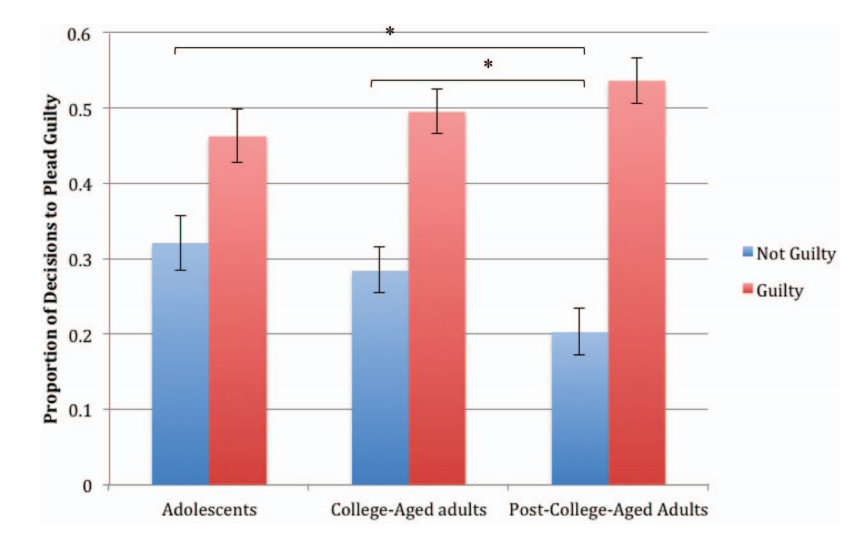Helm et al., 2018
In this paper, we asked children, college-aged adults, and post-college-aged adults to make plea decisions in simple hypothetical vignettes. For example:
Imagine that you have been arrested and are accused of grand theft (a felony). Imagine that you did not commit this crime. Your lawyer comes to you and sayd that the prosecution is prepared to offer you a plea deal. Would you rather:
Plead guilty and receive a definite felony conviction and one year of probation, or
Go to trial and have a 70% chance of receiving a felony conviction and two years of probation, and a 30% chance of receiving no conviction or penalty.
BBC News
All participants also received instructions on the law, and answered questions to test their comprehension.
We tested predictions of a psychological theory of memory and decision-making, known as Fuzzy Trace Theory, and results supported key predictions. We found that:
- Factual guilt or innocence has less of a role in the decision-making of children than it does in the decision-making of adults.
- Relatively superficial distinctions (eg short sentence reductions) could convince children to plead guilty even when innocent.

The paper adds to other research showing that children are at an increased risk of pleading guilty when innocent, and suggests that even modest sentence reductions have the potential to lead to miscarriages of justice via plea in child defendants.
